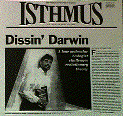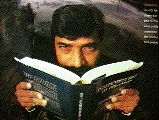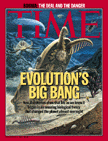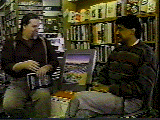
"A lone molecular biologist challenges evolutionary theory."
"For the past 14 years, Periannan Senapathy has been digging into the molecular origins of life on earth. And what he says he's found is that things didn't happen the
way Charles Darwin said they did." [Full article text]

Contains significant excerpts from chapters 1, 5, and 12 of Independent Birth of Organisms.

"Does having complex genes full of apparently worthless scrapes of DNA make us evolution's top dogs, or less sophisticated than bacteria?"

"The book of the month is Independent Birth Of Organisms by Periannan
Senapathy (Genome International, 1994). Fair warning: this book is heavy
reading, being nothing less than a new theory of evolution; or, rather, a
critique of why current theories based on Darwin can't be correct. If
nothing else, this is a readable (with difficulty) introduction to modern
molecular biology. I found it fascinating, but then I like complicated
scientific detective stories."

"We have a fascinating topic for you this morning, if not a little complicated, so get ready to challenge your mind."

Time: "For billions of years, life on earth was dominated by plankton, bacteria and algae. Then, in a burst of creativity like nothing before or since, nature sketched the designs for virtually the entire animal kingdom. What could have powered biology's "Big Bang"? [Full story text]
Senapathy: "No one can explain the
scenario of the Cambrian explosion in molecular or genetic terms using
the theme of descent with modification. I offer a more plausible scientific explanation of the same empirical findings of the Cambrian explosion."
[Full letter text]


